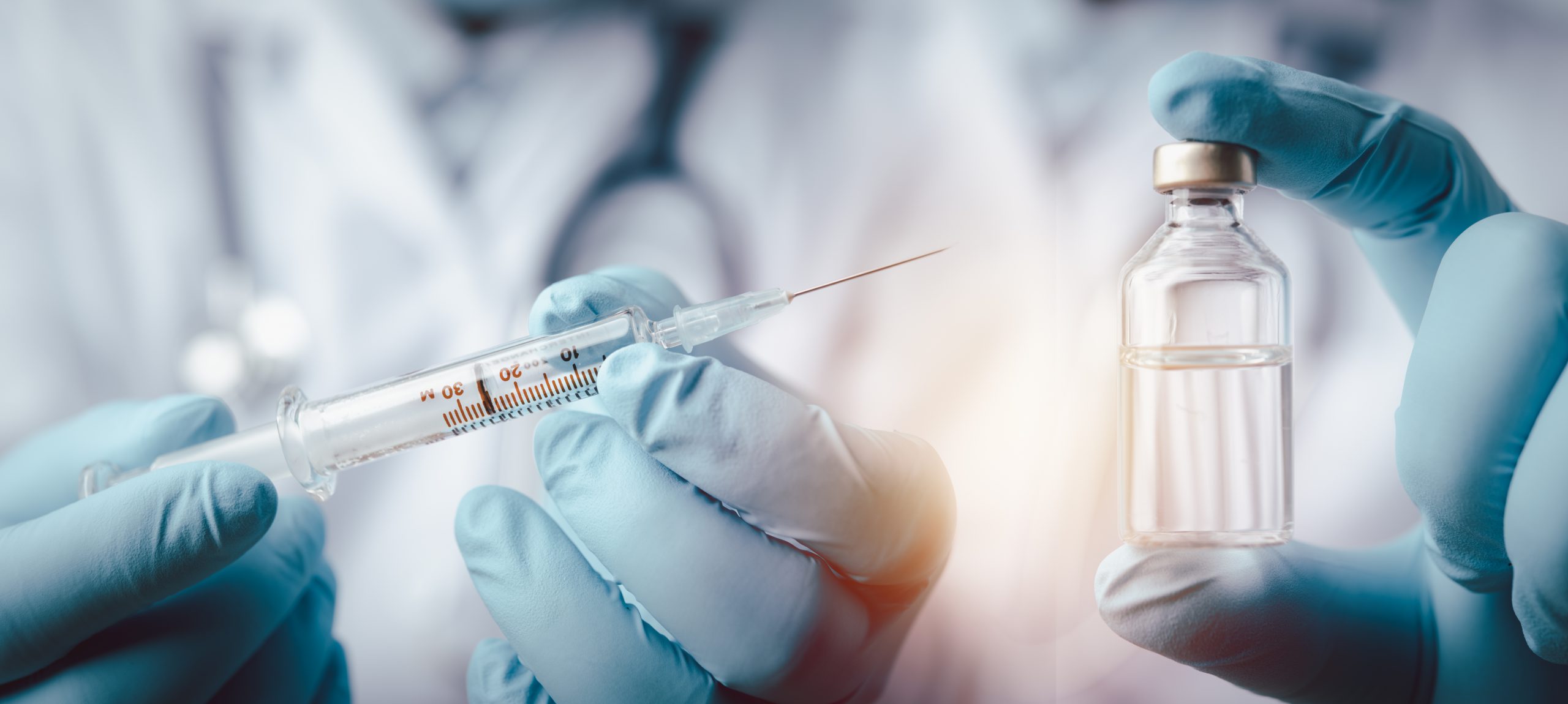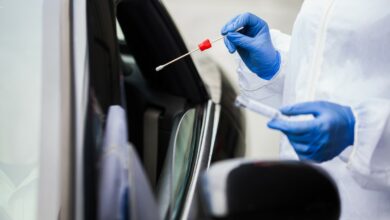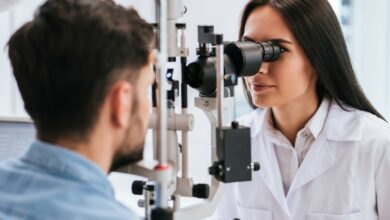Exciting Breakthroughs in Covid-19 Vaccine Development

In the United States, it typically takes years to finalize a vaccine due to intense testing and development. However, due to the toll Covid-19 is taking on the country, the US has instituted Operation Warp Speed to essentially speed up the process. This involves the partnership of manufacturers and federal agencies to speed up the timeline to get the vaccine safely developed and, on the market, faster than what is considered normal for vaccine development. To make things move faster, vaccine trial phases are being combined.
The World Health Organization provides up-to-date information about how the world is progressing regarding the coronavirus vaccine. It provides the following numbers:
Read More »• 14 in phase II
• 12 in phase III
• 6 in limited use
• 0 approved so far
To better understand these numbers, it is important to know what the various phases mean and what happens during them:
• Phase I: Dosage and safety are tested
• Phase II: Safety trials are expanded
• Phase III: Large-scale efficacy tests are performed
• Limited use: Approval for limited or early use of the vaccine is granted
• Approved: Full use of the vaccine is approved
There are currently human clinical trials being conducted for 48 vaccines. Scientists also have a minimum of 89 preclinical vaccines that they are putting through animal testing.
Research on Genetic Vaccines
This type of vaccine works to provoke an immune response by sending at least one coronavirus gene into your cells.
Moderna began developing this type of vaccine in January and in September they shared information about the protocol that they use to see if this vaccine was effective and safe. They state that it may be early 2021 before they get the number of volunteers needed to properly ascertain effectiveness and safety.
A global collaboration between Pfizer, BioNTech and Fosun Pharma is also working toward the creation of a genetic vaccine for this virus. Those receiving this vaccine will need to get two doses to develop the antibodies needed for protection against Covid-19. If this vaccine is granted authorization, it is expected that by the end of 2021 the involved pharmaceutical companies will produce more than 1.3 billion doses to be distributed throughout the world.
Zydus Cadila is a vaccine maker based in India. In July, they started working on a vaccine that is DNA-based and delivered to the body via a skin patch. In August, they moved onto phase II of the trial process.
CureVac has been working on an mRNA vaccine for this virus. They stated that they are hoping that by the end of 2020 that they will be in phase III and able to get 100 million doses made by this time. CureVac’s chief executive further stated that they are hoping that some time in 2021 they will gain full approval for their vaccine so that they can distribute billions of doses throughout the world.
Singapore’s Duke-NUS Medical School and Arcturus Therapeutics in California joined forces to develop an mRNA vaccine. What makes this vaccine unique is that it is designed to be self-replicating. It is able to produce more viral proteins for enhanced protection. A combined phase I and phase II trial was launched in August at a clinic in Singapore. As of now, animal testing shows that the vaccine did protect them against infection.
Research on Viral Vector Vaccines
These types of vaccines require the development of special viruses that work to carry genes from the coronavirus. Depending on the viral vector being used, they will either carry the proteins from the virus on their surface after slow replication, or they will stimulate the creation of viral proteins after entering cells.
In China, the Academy of Military Medical Sciences and CanSino Biologics teamed up for an Ad5-based vaccine. They declared that the vaccine allowed for a great immune response and in June it was approved in China for limited use. In addition, the vaccine entered phase III trials in multiple countries, including Pakistan, Saudi Arabia and Russia.
Another vaccine in this category approved for early use was developed by Russia’s Gamaleya Research Institute. The company created the viral vector using Ad26 and Ad5, both of which are adenoviruses and engineered them with a coronavirus gene. While it was set for early use in Russia, other countries are still in the trial phase. In October, India launched a combined phase II and phase III trial for this vaccine.
It was determined that this vaccine yielded mild side effects and antibodies to the virus. Russia has entered agreements with other countries to supply the vaccine, including Mexico, Brazil and India.
Vaxart is a small pharmaceutical company based in San Francisco. They specialize in developing vaccines that are administered orally and started work on an oral Covid-19 vaccine earlier in 2020. It uses the Ad5 adenovirus as a viral vector. They used mice to initiate their research and it did show the development of antibodies.
However, since mice do not experience the symptoms of this virus, the researchers decided to start using hamsters since they can experience symptoms. As the studies continued, the scientists discovered that hamsters were protected against two major disease symptoms, including swollen lungs and weight loss. A phase I clinical trial started in October where volunteers started to receive this pill-based vaccine.
Thermis Bioscience in Australia and Merck in the US are began working on a vaccine back in June. In August, the researchers began a phase I trial. What makes this vaccine especially interesting is that the researchers are using a weakened measles virus as the viral vector. It works by taking a coronavirus spike protein gene that the weakened measles virus carries to cells.
Merck embarked on another partnership this year to develop a second viral vector vaccine with IAVI. Vesicular stomatitis viruses are the basis of this vaccine. In fact, they are using the same approach that Merck used when it was able to create the first approve Ebola vaccine. This vaccine would come in the form of a pill so that it is easier to distribute compared to needing vials of the vaccine and syringes. A phase I trial was registered in September.
Research on Protein-Based Vaccines
These types of vaccines do not contain any genetic material, only proteins rom the virus. In some cases, the proteins are just fragments while in other cases, they are whole proteins. Some of them use nanoparticles to pack the molecules onto.
Novavax in the US launched a phase III trial in October. In September they did this in the United Kingdom, and it was made up of over 10,000 volunteers. They are using a blinded, placebo-controlled approach to get the most accurate information regarding vaccine efficacy and safety. This company is taking microscopic particles and sticking proteins onto them to cause an immune response.
Russia’s Vector Institute started a combined phase I and phase II trial for a vaccine in August. They are using peptides, which are small viral protein portions, to cause an immune response. In Russia, this vaccine is already approved for early use. It received approval prior to a phase III trial, but this is expected to be launched before 2021.
The University of Queensland in Australia is developing a vaccine that they say provides a stronger immune response. During early experiments on hamsters, the research concluded that they did gain protection from Covid-19. In July, they initiated phase I trials. During these trials, they combined an adjuvant and viral proteins that are altered. By the end of 2020, they expect to be in late stage clinical trials.
Research on Attenuated or Inactivated Vaccines
These vaccines take coronaviruses that have either been weakened or chemically killed to invoke an immune system response.
Some vaccines in this category have limited use approval in United Arab Emirates. One was developed by Wuhan Institute of Biological Products and showed that volunteers did develop antibodies. Another was tested by Sinopharm and determined that it was effective and safe after being given to health care workers after gaining emergency approval.
Bharat Biotech created an inactivated vaccine and performed studies on hamsters and monkeys. It was determined that they received protection against infection. This company initiated a phase III trial in October.
Research on Repurposed Vaccines
Australia’s Murdoch Children’s Research Institute is working on a phase III trial using a vaccine originally created for tuberculosis. The scientists are trying to determine if the vaccine will offer at least partial protection against Covid-19.
While no vaccine offers a cure for Covid-19, they have the potential to significantly reduce transmission of this virus. This can prevent death and a variety of comorbidities that can occur with this illness. It has become a global effort to develop a vaccine that can be used worldwide to alleviate the current pandemic and prevent a resurgence in the future.





